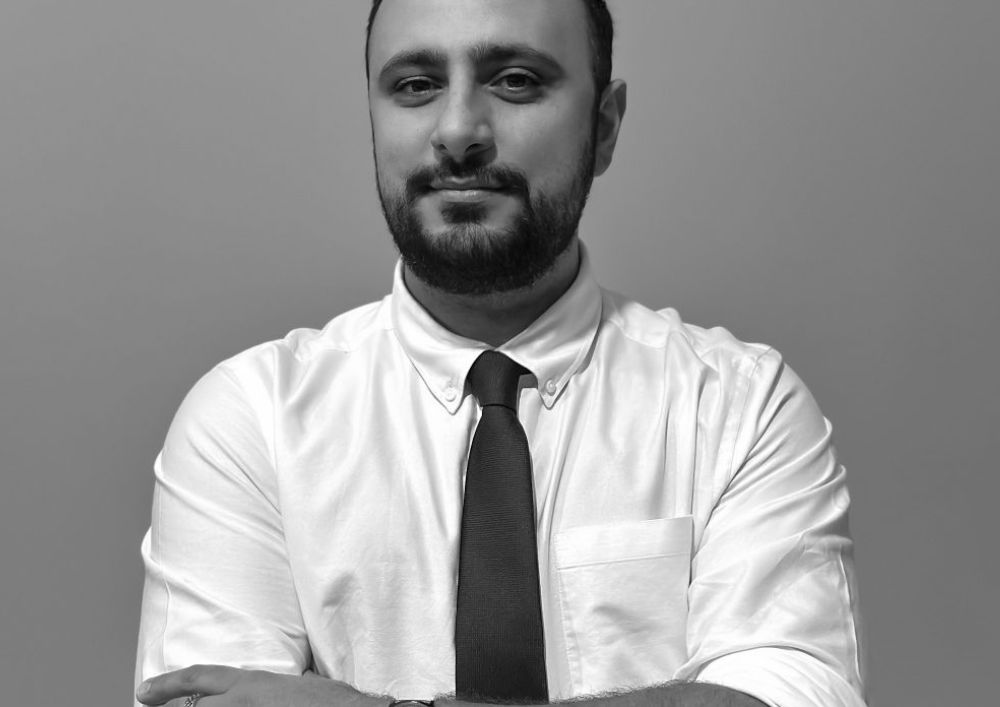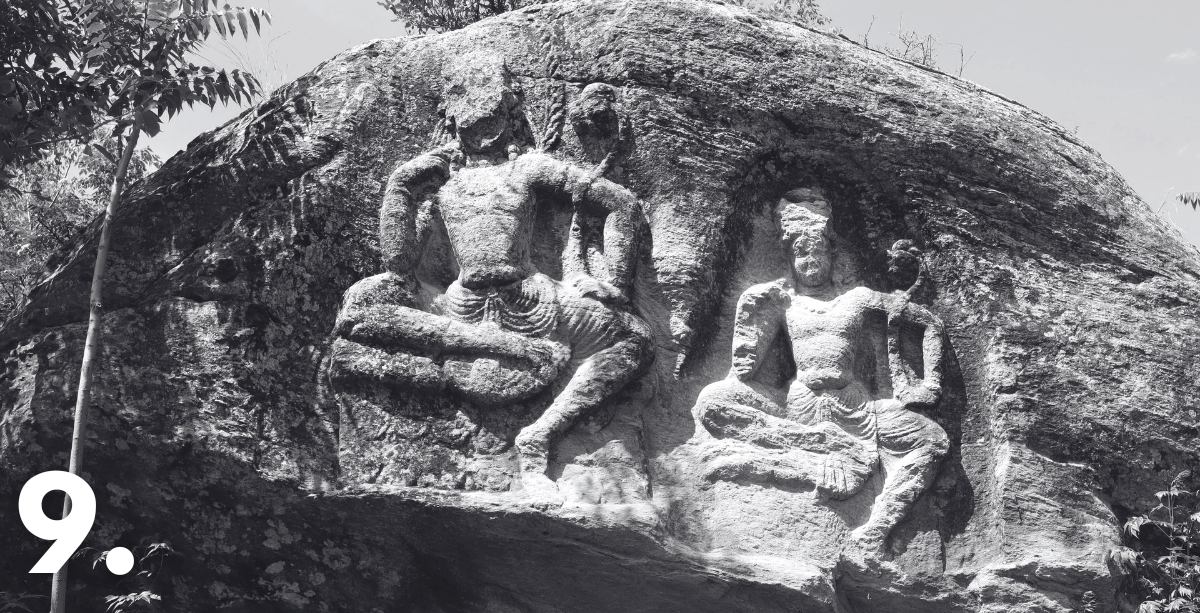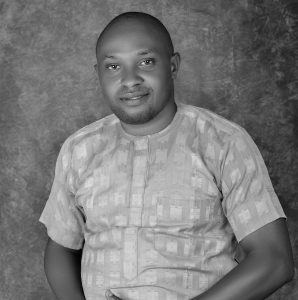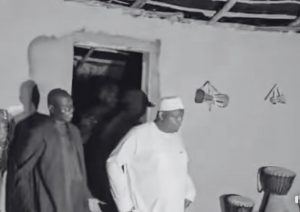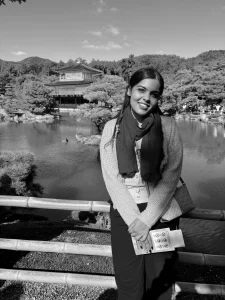: Impact
Legacy Builders: Anthony Bou Kabalan Geagea
Anthony Bou Kabalan Geagea | Conservation Architect | DGA Inventory Officer, Lebanon
Which workshops did you attend?
I participated in the summer school program “Digital Tools for Cultural Heritage Management, 2025” focused on QGIS, laser scanning, and photogrammetry; a combination of tools essential for heritage documentation and spatial data analysis. When I first enrolled, I expected to gain technical knowledge and practical skills. What I didn’t expect was how transformative the experience would be, not only for my projects but also for my personal and professional growth.
Was the training an opportunity to enhance your connection with your peers?
Absolutely. One of the most enriching aspects of the program was the diversity of its participants. Coming from different disciplines and countries, we brought varied perspectives to the table, fostering dynamic discussions and collaborative learning. These interactions extended well beyond the classroom and helped create a network of peers with whom I continue to exchange ideas and expertise.
Has the training contributed towards the improvement of your career?
Without a doubt, the training was exceptionally well designed and directly aligned with the needs of my field. As someone working in heritage documentation, the sessions on GIS tools, 3D modeling, and field-based data collection were immediately applicable to my day-to-day responsibilities. The curriculum struck an effective balance between theoretical foundations and hands-on practice, strengthening my professional profile and deepening my technical expertise.
The skills and knowledge I gained through the summer school have been especially valuable in my current role as Inventory Officer at the Directorate General of Antiquities (DGA) in Lebanon. In this position, I support the research and integration of geographic data and heritage descriptions into a comprehensive geospatial inventory of endangered sites in South Lebanon, many of which are currently at risk due to the ongoing war in the region. The use of QGIS, central to both the training and my present work, plays a crucial role in enabling the DGA to maintain an up-to-date, accurate, and accessible database of the region’s vulnerable cultural heritage assets.
Do you feel that your ability to perform relevant tasks has improved?
Yes. My ability to handle spatial data, conduct field surveys, and perform digital documentation tasks has improved significantly. Thanks to the course, I now confidently apply advanced QGIS techniques and photogrammetric workflows in my professional practice. What made this particularly impactful was the dedication of Dr. Cornelis, whose passion and continuous availability ensured that every participant gained clarity and support throughout the entire program.
Following the completion of the training, has your project benefited? How?
My current work involves documenting and managing cultural heritage assets using digital tools and spatial analysis. Since completing the training, the improvements in my workflow have been substantial.
- Field sites that were once captured using basic documentation methods are now rendered with much higher precision.
- The enhanced accuracy and detail have improved analysis, interpretation, and communication with stakeholders.
- Whether for internal reports, presentations, or long-term archiving, the quality of my project outputs has increased noticeably.
This training has directly strengthened the reliability and depth of the heritage documentation work I produce, ultimately benefiting the organizations and communities that depend on this data.
Would you recommend this training to others?
I totally recommend this program to heritage professionals, archaeologists, and anyone involved in spatial analysis or digital documentation. The training is rigorous, practical, and deeply relevant, offering not just technical skills but also a supportive and inspiring learning community. It is a meaningful opportunity to grow both professionally and personally while contributing to the preservation and understanding of our shared cultural heritage.
HERITΛGE 2025 Wrap-Up
In 2025, HERITΛGE continued to translate its mission of community-centred, inclusive, and sustainable heritage management into action across continents. From building local capacity across the world to advancing digital innovation and participatory practice in Europe and beyond, the year was defined by strong partnerships, expanded training, and tangible impact. HERITΛGE’s work in 2025 demonstrated how heritage can act as a driver of resilience, dialogue, and long-term social value, rooted in communities, connected globally, and oriented firmly toward the future.
1.The HerMaP Gambia successful completion
In February, HERITΛGE marked the successful completion of HerMaP Gambia, an initiative co-funded by the EU, by celebrating a milestone in community-driven heritage management. A certificate ceremony and visual art exhibition was held as part of The Gambia’s 60th Independence Anniversary celebrations, bringing together EU representatives, parliamentarians, and the Chair of the National Assembly to honour the dedication of the programme’s trainees. One week later, the Minister of Tourism, Members of Parliament, EU representatives, and a broad range of stakeholders convened for a high-level stakeholder lunch focused on sustaining the transformative results of the project. Already, we are seeing HerMaP Gambia graduates applying their new skills across the country—strengthening local heritage initiatives, engaging communities, and even training others. The programme’s impact is now firmly rooted in the sector, creating momentum that will shape heritage management in The Gambia for years to come.
2. HerMaP Africa: Building Capacity and Partnerships Across Three Countries
In 2025, HERITΛGE deepened its impact across Ethiopia, Ghana, and Rwanda through targeted capacity building, strategic partnerships, and close engagement with local cultural ecosystems, as part of the HerMaP Africa initiative supported by the Mellon Foundation. In Ethiopia, HERITΛGE delivered seven workshops and trained 127 participants, with a strong emphasis on hands-on, in-person conservation training. Notably, conservation workshops in Harar focused on equipping the next generation of staff from the Culture and Tourism Bureau with practical skills to safeguard this unique living heritage site, reinforcing long-term, community-based preservation. Institutional collaboration was further strengthened through the signing of two Memoranda of Understanding with key Ethiopian organisations. In Ghana, HERITΛGE delivered four workshops and trained 80 participants, ensuring broad regional representation and inclusive access to capacity building beyond major urban centres. A national networking roundtable brought together stakeholders and project leaders to exchange experiences, align priorities, and address shared challenges in the heritage sector, alongside the signing of two strategic MoUs. In Rwanda, four workshops trained 78 participants, and three MoUs were signed with leading institutions, including a milestone partnership with the Ministry of Youth and Arts. HERITΛGE also contributed to the Ubumuntu Arts Festival through programme consultations and a participatory session with young creatives, strengthening connections between heritage, contemporary culture, and youth engagement. Across all three countries, a dedicated Train-the-Trainers programme equipped 19 heritage professionals to act as HERITΛGE ambassadors, significantly amplifying local capacity and long-term impact.
3. Small Grants for African Heritage
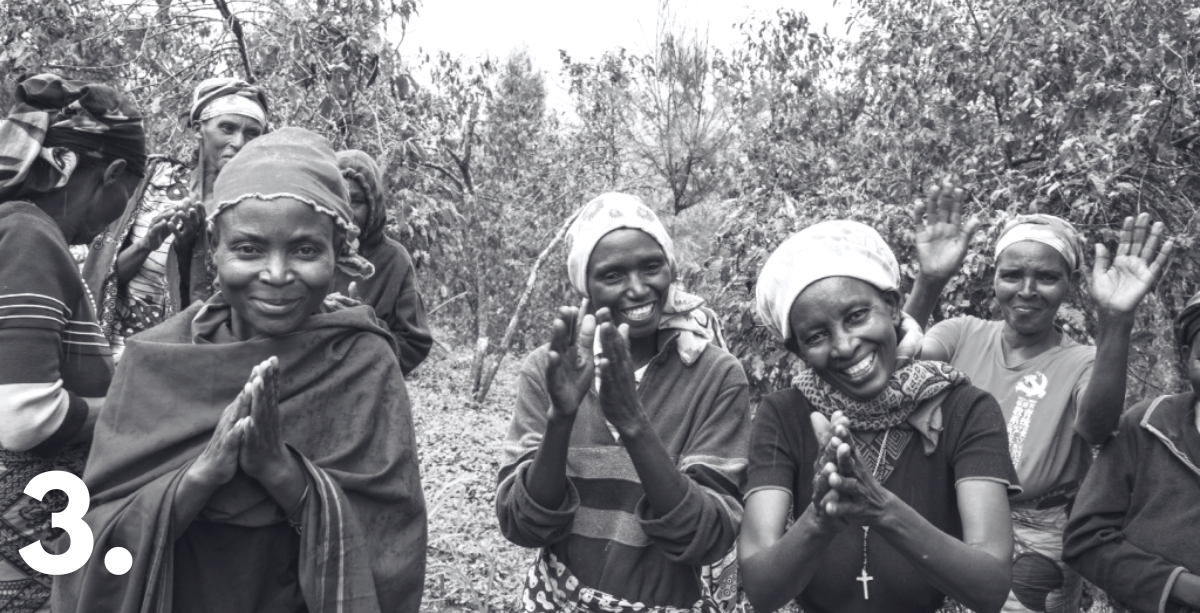 The regranting phase of HerMaP Africa reached its conclusion, marking one of the most ambitious and impactful heritage-support programmes on the continent. Since 2023, HERITΛGE has received more than 2,500 applications from across Africa and funded over 74 small heritage projects, each led by local actors working to safeguard, reinterpret, and activate their cultural heritage. This regranting initiative was made possible with the generous support of the Mellon Foundation. Throughout the year, grantees participated in six regional convenings, creating spaces to exchange experiences, strengthen their skills, and learn from peers—building a growing network of practitioners committed to community-centred heritage work. Several more convenings are planned for 2026 to continue nurturing this collaborative ecosystem. The results have been remarkable: from revitalised cultural practices to restored and more resilient cultural sites, to new opportunities for local development, these projects are already transforming lives. We are proud to showcase this work through dedicated social media features and a new publication that brings together the stories, challenges, and achievements of the HerMaP Africa grantees.
The regranting phase of HerMaP Africa reached its conclusion, marking one of the most ambitious and impactful heritage-support programmes on the continent. Since 2023, HERITΛGE has received more than 2,500 applications from across Africa and funded over 74 small heritage projects, each led by local actors working to safeguard, reinterpret, and activate their cultural heritage. This regranting initiative was made possible with the generous support of the Mellon Foundation. Throughout the year, grantees participated in six regional convenings, creating spaces to exchange experiences, strengthen their skills, and learn from peers—building a growing network of practitioners committed to community-centred heritage work. Several more convenings are planned for 2026 to continue nurturing this collaborative ecosystem. The results have been remarkable: from revitalised cultural practices to restored and more resilient cultural sites, to new opportunities for local development, these projects are already transforming lives. We are proud to showcase this work through dedicated social media features and a new publication that brings together the stories, challenges, and achievements of the HerMaP Africa grantees.
4. HerMaP Mexico: Launching a New Border Region Initiative
This year also marked the launch of HerMaP Mexico, a major new initiative that expands HERITΛGE’s work into North America and supports cultural heritage actors across Mexico’s northern border states. Funded by the Mellon Foundation’s Humanities in Place programme, the project brings a comprehensive, community-focused approach to heritage management through mapping, training, networking, and small grants. In 2025 we established the foundations of the programme: building local partnerships, initiating the mapping of heritage professionals and institutions across six states, and preparing the first round of capacity-building workshops to be delivered in both Spanish and English. HerMaP Mexico responds to the region’s unique cultural landscape—shaped by Indigenous, mestizo, migrant, and Chicano communities—and aims to strengthen local skills while creating new opportunities for collaboration and sustainable development. As the project moves forward, it will support locally led initiatives and grow into a long-term platform that connects heritage practitioners across the border region with global networks and resources.
5. Professional Training and Executive Leadership Education Programmes
HERITΛGE continued to strengthen its leadership in professional training by expanding its Executive Leadership Education programmes and reinforcing its global learning community. A key milestone was the introduction of Community Tourism and Development into the curriculum, responding to the growing need for heritage managers to understand how cultural resources can generate sustainable economic benefits while reinforcing social cohesion, identity, and community resilience. This year also saw the first alumni conference of the Engaging Communities in Cultural Heritage Summer School, bringing together former participants from around the world to share research, field experiences, and community-based practices. Alongside this, HERITΛGE successfully delivered its Conservation Series Training Programmes for the second time, expanding the offer to include First Aid for Finds and Preventive Conservation, and equipping participants with practical skills applicable across diverse heritage contexts. The Training of Trainers (ToT) programme continued to grow, building a global cohort of HERITΛGE Ambassadors—heritage professionals trained to deliver high-quality, cross-cultural capacity building within their own communities. Together, these initiatives reflect HERITΛGE’s ongoing commitment to community-centred heritage management, interdisciplinary collaboration, and the empowerment of professionals working at the intersection of culture, development, and sustainability, supported by a vibrant international network united by shared values and collective impact.
6. Advancing Audience-Centred Heritage Practice through AHEAD
In 2025, HERITΛGE advanced its work on audience-centred heritage practice through AHEAD (Accessible Heritage Experience for Audience Development), a project co-funded by Creative Europe and dedicated to strengthening participation, co-creation, and sustainability across the cultural heritage sector. At the Archaeological Museum of Messara, the project’s Greek hub, HERITΛGE hosted a series of co-creation labs in early 2025, followed by a study visit for AHEAD project partners in May, creating space for peer learning and in-depth exchange around participatory heritage approaches. In July, the 3rd AHEAD Networking Event brought together practitioners and researchers, and featured the presentation of the Living Heritage Network in Greece by Theodosia Maroutsi, highlighting how community-led approaches can be embedded in national heritage ecosystems. In September, HERITΛGE organised a dedicated Multiplier event in Athens to share the results of AHEAD with heritage managers, researchers, and cultural professionals. The project culminated in October with the presentation of AHEAD and its outcomes in Brussels and, for the Greek hub, a public event at the Archaeological Museum of Messara, where Elektra Angelopoulou, the project’s artist-in-residence, presented a site-specific artwork co-created with the local community. Alongside these events, AHEAD produced a dedicated magazine and learning resources that document the project’s insights and offer practical tools for fostering co-creation, inclusion, and long-term sustainability in cultural heritage practice.
7. SHIFT: Inclusive Digital Innovation for the Future of Cultural Heritage
HERITΛGE and its SHIFT consortium partners concluded this ambitious Horizon Europe project aimed at making cultural heritage more accessible, inclusive, and engaging through advanced technologies. Over its lifetime, SHIFT delivered a suite of innovative tools—including an Image-to-Video generator, affective speech synthesis, haptics interfaces, and a platform designed to support inclusive digital storytelling—alongside a pioneering Extended Reality (XR) Accessibility Framework. These results were tested and refined through four pilot events in Germany, Hungary, Romania, and Serbia, ensuring that the tools responded to real needs within museums, libraries, and cultural organisations. The project’s achievements were showcased at major gatherings such as the Digital Heritage World Congress and Expo in Siena, highlighting SHIFT’s contribution to the future of digital cultural heritage. As part of our commitment to long-term impact, HERITΛGE developed a set of training modules to equip cultural heritage professionals with the skills they need to adopt and apply these new technologies in their own contexts.
8. Strengthening a National Platform for Living Heritage
HERITΛGE strengthened its commitment to living heritage in Greece as a founding member of the country’s Living Heritage Network, with our Greek Programmes Manager, Theodosia Maroutsi, serving for the third year on its coordinating committee. In this role, HERITΛGE actively contributed to the Network’s 2nd National Meeting, held in Athens on 21–23 February, a major highlight of the year, where Theodosia welcomed participants and drove the dialogue during the “Living Heritage Network: Formation and Perspectives” roundtable “ reflecting on the Network’s development and future direction. HERITΛGE also delivered one of the leading side events of the 2nd National Meeting, a hands-on workshop, for 30 participants, titled “Working on the Narrative Interpretation of Living Cultural Heritage,” supporting practitioners in exploring narrative approaches to interpreting living heritage. Our impact extended well beyond the 2nd National Meeting’s floor. HERITΛGE was instrumental in drafting the Network’s Mapping Questionnaire, which was also launched in autumn of 2025. This Mapping is a crucial initiative designed to identify the essential needs of the living heritage ecosystem. The Network’s work was further amplified through HERITΛGE’s involvement in European projects: it was featured in AHEAD, where Theodosia participated in the 3rd Online Networking Event and was interviewed for the project’s magazine—freely available in English, Greek, Italian, and Spanish—and in EMPATHS, where the Network informed stakeholder mapping, cross-sector interviews, and co-design findings. Together, these activities positioned the Living Heritage Network as a key grassroots platform for participatory, community-led heritage practice in Greece and beyond.
9. Safeguarding Pakistan’s Most Significant and Vulnerable Cultural Landscapes
HERITΛGE and our partners completed the first phase of the project Preservation of Buddhist Rock Reliefs in the Swat Valley, safeguarding one of Pakistan’s most significant and vulnerable cultural landscapes. The initiative documented and conserved Buddhist rock carvings dating from the 8th to the 10th centuries, while also recording oral histories, legends, and traditional arts and crafts that link Pashtun culture with the Valley’s Buddhist past. Using advanced digital techniques, 78 rock reliefs were documented and made accessible through a public website featuring interactive maps and 3D models, and first aid conservation was carried out on 39 of the most at-risk sites. Capacity building was central to the project, with local participants trained in digital documentation and climate change adaptation. This first phase concluded with a public event at the Swat Museum and was presented internationally, including at the Lahore Museum, the Venice Biennale, and COP30, where it was cited as a strong example of heritage resilience in the face of climate change. Funded by the British Council’s Cultural Protection Fund and implemented with local and international partners, the project demonstrates how conservation, community engagement, and digital innovation can work together to protect heritage for future generations.
10. EMPATHS: Advancing Participatory Heritage Interpretation Across Europe
In 2025, HERITΛGE deepened its engagement in the Erasmus+–funded EMPATHS project, which aims to equip heritage professionals with the skills needed for participatory, community-driven heritage interpretation. Early in the year, the project contributed to international dialogue through a LDnet webinar on empowering local communities for smart and sustainable cultural heritage, while in May it published the EMPATHS Baseline Report, offering a comprehensive overview of current practices, challenges, and opportunities in participatory heritage interpretation across Europe and beyond. EMPATHS was further showcased at the European Association of Archaeologists (EAA) Congress in Belgrade, through the session “Voices of the Past, Hands of the Present: Collaborative Pathways in Archaeology and Heritage Interpretation.” In parallel, HERITΛGE led two online co-design sessions in Greece with heritage professionals from Alexandroupoli and Rizía, marking the project’s first structured dialogue between technical partners and piloting organisations and directly informing the design of the forthcoming training programme. Over the summer, EMPATHS published four key deliverables, including stakeholder mapping, cross-sector interviews, and co-design findings, all reinforcing the demand for skills in facilitation, storytelling, and emotionally resonant communication. The year culminated with the project’s second Transnational Project Meeting in Athens, where partners advanced work on the EMPATHS methodological compendium and training framework, the presentation of the project during a Global Alliance for Heritage Interpretation Webinar, and, importantly, with the publication of the EMPATHS Manifesto—a collective call to move beyond top-down interpretation and embrace heritage as a shared, democratic, and future-oriented process shaped with communities.
11. Community-Led Preservation of Earthen Architecture in Shibam, Yemen
In Yemen, HERITΛGE advanced a major effort to safeguard the cultural heritage of Shibam through the ALIPH-funded project Preserving the Unique Earthen Architecture of Shibam. In early 2025, museum experts Shatha Safi and Khulod Najjar travelled to the UNESCO World Heritage city to guide the community-led planning of a new museum that will bring together collections currently scattered across Shibam and create dedicated spaces for traditional arts, crafts, and digital learning. Their visit marked a pivotal moment in the project, with consultations held with local authorities, heritage institutions, and women from the community to ensure the museum reflects the lived experiences, history, and aspirations of Shibam’s residents. Alongside this vision-setting, HERITΛGE is training local professionals on-site, with four trainees already working with our team on the documentation of the South Palace—future home of the museum. Complemented by architectural assessments and a climate action study, the project is laying the groundwork for a resilient cultural hub that will support preservation and community engagement for years to come.
12. Safeguarding Architectural Heritage in Times of War in Ukraine
In Ukraine, HERITΛGE advanced critical work to protect architectural heritage threatened by war through the project Architectural Heritage Preservation in Times of War: The Ukrainian Model, delivered with the Kharkiv School of Architecture and 3D documentation specialists Skeiron. Launched in September 2024, the programme trained 30 students and 10 educators from across the country in cutting-edge documentation and conservation techniques—from photogrammetry and 3D laser scanning to international heritage standards—while providing hands-on field internships in Western Ukraine. Together, they created high-resolution digital records of 15 at-risk sites, safeguarding knowledge even as physical structures remain vulnerable. Through educator training and a series of public webinars, the project also planted the seeds for a new nationwide curriculum in architectural heritage preservation. Its impact extends far beyond a single academic year: it has built a cohort of young architects and teachers equipped with the skills, networks, and resolve to protect Ukraine’s cultural memory during conflict and beyond. Their work stands as a reminder that preserving heritage is not only an act of conservation, but an act of resilience and recovery.
13. New Projects for the Digital Transformation of Cultural Heritage
 In 2025, HERITΛGE became a consortium partner in two new projects funded under the EU’s Horizon Europe programme, both contributing to the ECHOES initiative and the development of the European Collaborative Cloud for Cultural Heritage (ECCCH). ECHOES aims to establish a shared digital infrastructure that brings together currently fragmented cultural heritage communities, offering access to data, advanced digital tools, scientific resources, and training materials developed collaboratively by heritage professionals and researchers. HERITΛGE participates in MusicSphere, a project dedicated to preserving and interpreting traditional musical organs—such as pipe organs and their ancient Greek counterpart, the hydraulis—through high-fidelity digital replicas, acoustic modelling, and immersive virtual and augmented reality experiences that capture both their physical structure and sonic interaction with architectural spaces. HERITΛGE is also a partner in EXCALIBUR, which focuses on burial sites, excavation contexts, artefacts, and human remains, developing human-centred, affordable digital twin technologies to support research, conservation, restoration, and museum interpretation. Together, these projects contribute to the long-term preservation, study, and public understanding of complex heritage assets, while ensuring that open, interoperable, and practitioner-driven tools are shared through the ECCCH platform for broad professional and societal impact.
In 2025, HERITΛGE became a consortium partner in two new projects funded under the EU’s Horizon Europe programme, both contributing to the ECHOES initiative and the development of the European Collaborative Cloud for Cultural Heritage (ECCCH). ECHOES aims to establish a shared digital infrastructure that brings together currently fragmented cultural heritage communities, offering access to data, advanced digital tools, scientific resources, and training materials developed collaboratively by heritage professionals and researchers. HERITΛGE participates in MusicSphere, a project dedicated to preserving and interpreting traditional musical organs—such as pipe organs and their ancient Greek counterpart, the hydraulis—through high-fidelity digital replicas, acoustic modelling, and immersive virtual and augmented reality experiences that capture both their physical structure and sonic interaction with architectural spaces. HERITΛGE is also a partner in EXCALIBUR, which focuses on burial sites, excavation contexts, artefacts, and human remains, developing human-centred, affordable digital twin technologies to support research, conservation, restoration, and museum interpretation. Together, these projects contribute to the long-term preservation, study, and public understanding of complex heritage assets, while ensuring that open, interoperable, and practitioner-driven tools are shared through the ECCCH platform for broad professional and societal impact.
HERITΛGE Grantee Wins 2025 UNESCO–Japan Prize on Education for Sustainable Development
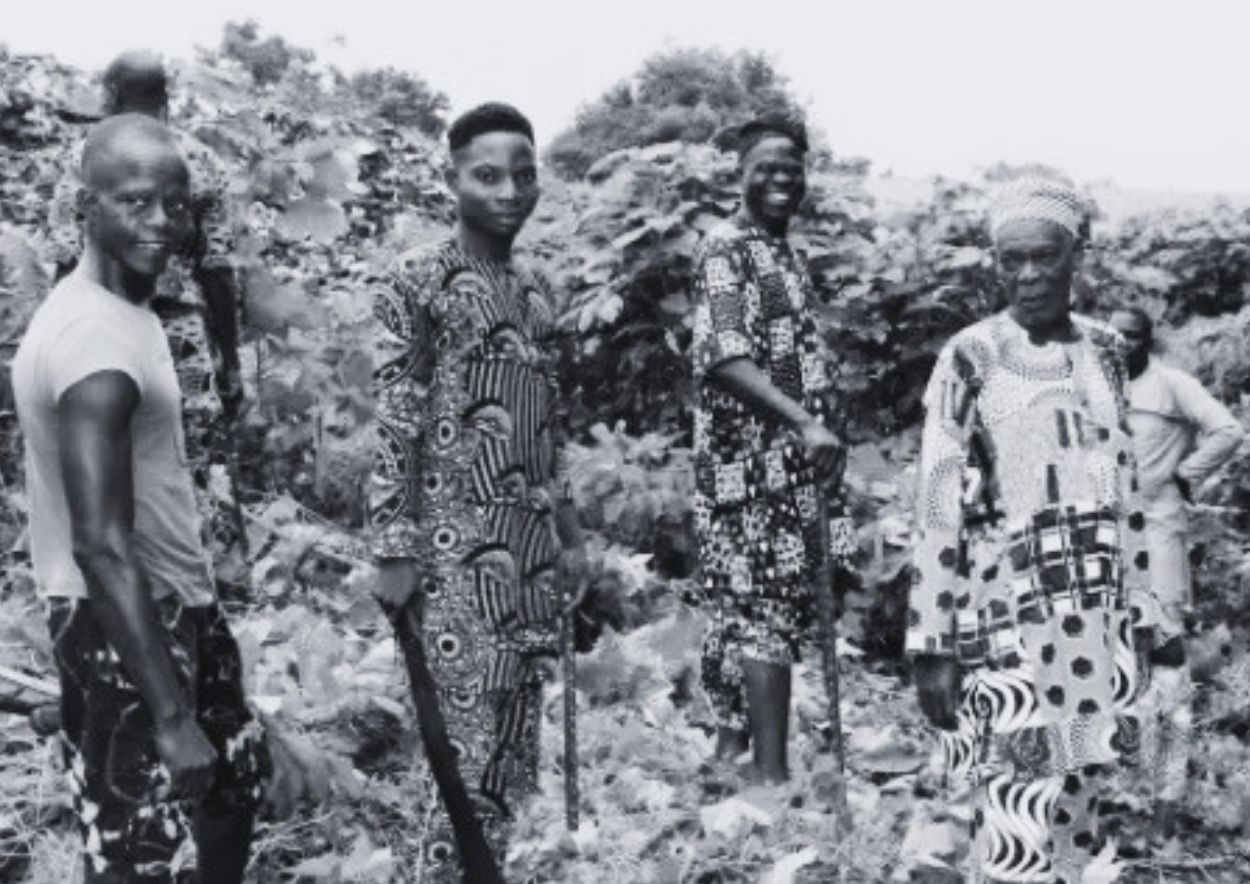 HERITΛGE is proud to announce that one of the projects funded through our Small Grants for Africa initiative—made possible with support from the Mellon Foundation’s Humanities in Place program—has been selected as a laureate of the 2025 UNESCO–Japan Prize on Education for Sustainable Development (ESD). This global recognition celebrates outstanding and transformative initiatives advancing sustainability through education and community engagement.
HERITΛGE is proud to announce that one of the projects funded through our Small Grants for Africa initiative—made possible with support from the Mellon Foundation’s Humanities in Place program—has been selected as a laureate of the 2025 UNESCO–Japan Prize on Education for Sustainable Development (ESD). This global recognition celebrates outstanding and transformative initiatives advancing sustainability through education and community engagement.
Selected from 120 nominations worldwide, Culture at the Heart of Development (CACD-NGO) from Benin received the award for its innovative project, “Restoration and Innovative Management of the Ookpo Sacred Forest in Pobè.” The prize was awarded during a ceremony at UNESCO Headquarters in Paris on 20 November 2025, with each laureate receiving US $50,000.
A Model of Sustainability Rooted in Cultural Heritage
Launched in 2019, the project focuses on safeguarding the Ookpo Sacred Forest, dedicated to the Ondo (Oranyan) deity. Supported by HERITΛGE’s Small Grants for Africa program, the initiative showcases how cultural heritage can serve as a powerful platform for sustainable development.
CACD-NGO’s work integrates traditional knowledge with modern tools—including digital outreach, heritage education, and ecotourism development—to create a transformative model of Education for Sustainable Development that:
- Revitalizes sacred forest heritage
- Strengthens climate resilience through conservation
- Engages youth and community members in sustainable practices
- Combines cultural knowledge with digital innovation
- Supports nature-based economic development and job creation
An independent international jury praised the project for its “outstanding contribution to transforming local communities through its effective blend of cultural revitalization, digital innovation, and nature-based economic development.” The initiative’s social impact—spanning environmental protection, youth empowerment, and livelihood creation—was central to its selection as a 2025 laureate.
HERITΛGE celebrates this achievement as a profound affirmation of the leadership and creativity of African heritage organizations working at the intersection of culture, sustainability, and community well-being. We are honored to have supported CACD-NGO and proud to see their work recognized on the global stage.
“We extend our warmest congratulations to CACD-NGO on this remarkable achievement and look forward to the continued growth and impact of their work. This is excellent news, and we are so proud that this work is being recognised internationally” said HERITΛGE Director Dr. Evangelos Kyriakidis.
Project manager Franck Serge W. Alokpowanou contacted HERITΛGE to share the news.
“We are delighted to share this distinction with you and to express our sincere gratitude for your support and partnership, which made this achievement possible,” he said.
The success of this project underscores HERITΛGE’s commitment—supported by the Mellon Foundation—to advancing heritage-centered approaches to sustainable development across Africa. Through the Small Grants for Africa program, we continue to empower local organizations that are preserving heritage, fostering resilience, and driving positive social transformation.
Read more about the Awards and all three laureates here.
Legacy Builders: Peter Adewale Jegede
Peter Adewale Jegede | Consultant Curator and Heritage Researcher, Olusegun Obasanjo Presidential Library, Nigeria & 4th Cohort of Case Study Researcher, Open Restitution Africa
Which workshop(s) did you attend?
I have participated in several HERITΛGE programmes, including Engaging Communities in Cultural Heritage, Temporary Exhibition and Touring Strategies, Conservation I, Conservation II, and I will complete Conservation III in November.
Was the training an opportunity to enhance your connection with your peers?
Yes. The workshops created a space where practitioners across Africa and beyond could exchange ideas and challenges. These connections have proved valuable in my ongoing work with communities affected by restitution.
Has the training contributed towards the improvement of your career?
Absolutely.The courses strengthened my curatorial and research practice, especially in community engagement, preventive conservation, and exhibition development. They also expanded my professional visibility in discussions around restitution in Nigeria.
Do you feel that your ability to perform relevant tasks has improved?
Yes. I now approach community-focused heritage work with clearer methods and greater confidence. The HERITΛGE training refined my skills in co-creation, documentation, and culturally sensitive interpretation, all of which I apply directly in my restitution engagements.
Following the completion of the training, has your project benefited? How?
My work at the Olusegun Obasanjo Presidential Library, Open Restitution Africa and my broader engagements in Nigeria and beyond have benefited significantly. The training has helped me design community-centred dialogues following restitution, such as the Restitution 101 Screening and Case Study Discussions that attracted about ninety participants. It shaped the way I facilitated conversations with descendant communities, allowing them to reflect on memory, trauma, and healing from their own perspective.
It has also strengthened my collaboration with communities in Ile-Ife, who are now exploring opportunities for a similar programme. The knowledge gained from HERITΛGE directly informed how I approached these discussions, ensuring that community voices remain central in post-restitution interpretation and planning.
Would you recommend this training to others?
Yes, without hesitation. The workshops are practical, engaging, and transformative. Anyone working in heritage, particularly those involved in archaeological work, preservation of heritage sites, collection management, exhibition, restitution or community engagement, will find them invaluable.
Gambia President visits Jufureh museum supported by HERITΛGE
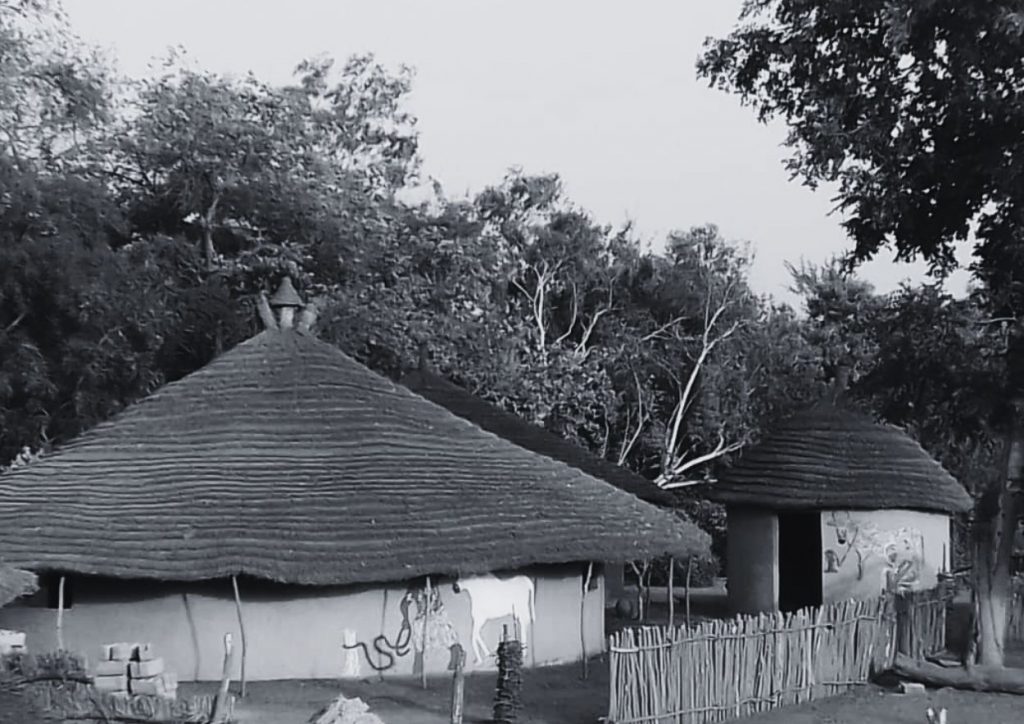 In a strong show of support for the preservation of The Gambia’s cultural heritage, His Excellency President Adama Barrow visited the Jufureh Heritage Village Museum in the North Bank Region. The visit marks a proud moment for HERITΛGE, as the new museum has been made possible with funding from our Small Grants for African Heritage funded by the Mellon Foundation—and our HerMaP Gambia initiative, funded by the European Union.
In a strong show of support for the preservation of The Gambia’s cultural heritage, His Excellency President Adama Barrow visited the Jufureh Heritage Village Museum in the North Bank Region. The visit marks a proud moment for HERITΛGE, as the new museum has been made possible with funding from our Small Grants for African Heritage funded by the Mellon Foundation—and our HerMaP Gambia initiative, funded by the European Union.
The Jufureh Heritage Village Museum, developed by the Alamanding Foundation, is a community-driven initiative dedicated to safeguarding traditional knowledge, skills, and stories for future generations. More than a space for preserving artefacts, it serves as a living museum—a place where culture thrives through civic education, environmental awareness, artisan workshops, and storytelling gatherings at Banta Baa, a communal hub for cultural exchange.
At the heart of the project is the construction of a traditional Mandinka homestead, built using local materials and techniques that reflect the authenticity of rural Gambian life. The homestead complements an already completed Fulani compound, together forming a vibrant cultural complex that celebrates the shared heritage of the Mandinka and Fula communities of the Niumi District.
The initiative also supports sustainability and community empowerment. A solar-powered borehole has been installed to provide clean water and electricity to the site, ensuring that the museum operates in an environmentally responsible way. Meanwhile, 12 local stakeholders—including tour guides, museum staff, and tourism officials—have been trained by HERITΛGE in oral history collection, heritage interpretation, and cultural tourism marketing.
These activities are already generating impact. The museum has become a focal point for visitors seeking deeper engagement with Gambian heritage and for locals who see their traditions valued and sustained.
HERITΛGE is proud to have contributed to a project that not only preserves heritage but also creates opportunities, strengthens local identity, and demonstrates the power of community-led action. President Barrow’s visit is a testament to the national importance of such efforts and to the shared vision of building a more inclusive and sustainable future for heritage in The Gambia.
You can now visit the museum and find out more about Jufureh’s heritage. Find out more here.
*HERITΛGE’s Small Grants for Africa Initiative is supported by the Mellon Foundation’s Humanities in Place program. This project has also received funding from EU-funded HerMaP Gambia.
Legacy Builders: Srishti Jauhri
Srishti Jauhri | Heritage Expert, Development and Research Organisation for Nature, Arts and Heritage (DRONAH), India
Which workshop(s) did you attend?
I attended the Interpretive Writing for Natural and Cultural Heritage online workshop in November 2024. Over the course of the workshop, we explored the foundations of interpretive writing and practiced crafting compelling narratives that can help visitors connect more deeply with heritage.
Was the training an opportunity to enhance your connection with your peers?
Absolutely. The workshop fostered a highly interactive environment through breakout discussions and collaborative exercises. I had the opportunity to work and exchange ideas with peers from across the world – including heritage practitioners from Africa, Europe, and Asia.
This was especially enriching because it highlighted how people interpret heritage differently based on their backgrounds. Understanding these varied perspectives helped me deepen my own interpretive approach and build a small but meaningful global network of colleagues.
Has the training contributed towards the improvement of your career?
Yes, very much so. Interpretation is central to my work and this training significantly strengthened my expertise in this domain. It boosted my confidence in writing for diverse audiences and helped me refine a skill set that is now directly supporting projects related to heritage interpretation and audio-visual storytelling.
The experience also added credibility to my professional profile, as interpretive writing is a critical yet specialized role in the heritage sector.
Do you feel that your ability to perform relevant tasks has improved?
Yes — in several practical ways. The training helped me:
• Learn how to develop clear interpretive themes
• Transform plain descriptive information into engaging narratives
• Structure text differently depending on the medium (panels, scripts, audio guides, etc.)
• Create catchy titles and key messages that hold attention
• Critically assess readability and engagement in interpretive writing
This shift in mindset — from “informing audiences” to “connecting with audiences” — has now become core to my interpretive writing approach.
Following the completion of the training, has your project benefited? How? (please briefly explain what your project/ organization is about and how it benefited from your training.
Yes — I applied my learnings directly to our project on the development of an interpretation centre for a monument of national importance in the south of India – the Kailasanathar Temple in Kanchipuram. After completing the workshop, I applied the methods learnt to draft audio guide scripts, write narrative content for the website, design the structure for an audiovisual presentation in the centre, and begin shaping the text and key messaging for physical interpretive panels. The training helped me establish strong interpretive themes and translate complex architectural and religious concepts into accessible, engaging storytelling that invites curiosity and emotional connection. These skills have strengthened the foundation for creating a visitor experience that is both informative and meaningfully immersive. The centre is still under development, and I am excited to see how our interpretive content shapes visitor experiences on the site!
Would you recommend this training to others?
Absolutely. I would highly recommend this workshop to heritage interpreters, museum professionals, and anyone engaged in public-facing heritage communication. It offers practical tools and thoughtful guidance that greatly enhance one’s ability to communicate heritage values in compelling, visitor-focused ways!
- 1
- 2

